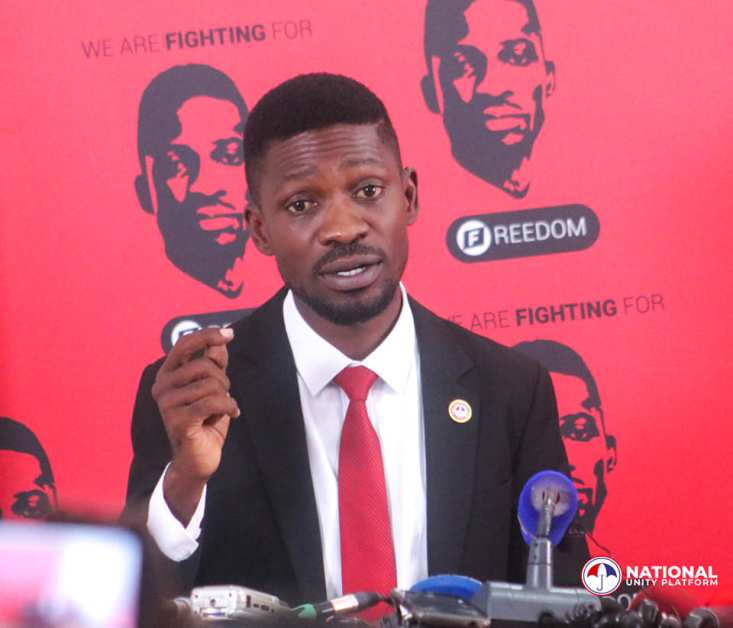Judges undergoing the training
Over 80 judges and prosecutors from Uganda and the COMESA states have been undergoing training on the adjudication of financial crimes like money laundering and financing terrorism.
The training arranged by the Financial Intelligence Authority, the Judiciary in Uganda, and the Common Market for Eastern and Southern Africa (COMESA) secretariat was held at the Lake Victoria Serena Hotel Kigo.
With a population of over 54 million and global trade in goods worth more than US$ 235 billion, COMESA forms a major marketplace for both internal and external trading. The region is now faced with the threat of illicit Financial flows.
It has previously been noted that the Rising sophistication of financial crimes especially money laundering and terrorism financing necessitates greater inter-agency collaboration and regional partnerships.
One of the strategies is to have judges and prosecutors trained to process and adjudicate cases related to money laundering and the financing of terrorism using illicitly acquired money.
However, it has also been observed that the judges and prosecutors have inadequate capacity, resources, and expertise to implement strategies for fighting the money laundering and financing of terrorism.
The Financial Intelligence Authority -FIA Executive Director, Samuel Were Wandera said the judicial officers form part of the very important third pillar of Anti-Money Laundering and Combating the Financing of Terrorism (AML/CFT) systems. Wandera called for a strong legal framework, institutions, and mentalities to prevent the crimes.
He said there is a need for proper investigation and prosecution of money laundering suspects so that they are handed proper punishments including the confiscation of the proceeds from illicit finances.
“As you hold a pivotal role in shaping this future. Your decisions can set precedents, inspire change, and ensure that the rule of law prevails over the clandestine operations of money launderers and other criminals,” said Wandera.
Wandera said the National Risk Assessment report revealed the most proceeds-generating predicate offenses are corruption, fraud (that includes; cybercrime, obtaining money by false pretences, visa fraud, identity theft, and pyramid schemes.), tax crimes (tax evasion and fraud), and counterfeiting of goods. He said from the external/transnational level, the most proceed-generating predicate offenses were drug trafficking, human trafficking, smuggling, wildlife offenses, and tax evasion.

In addition, he said the findings of the assessment indicate that terrorist threats emanate mainly from external sources within the region.
Cyrus Barigye said the Authority had embarked on a national survey on virtual assets and Virtual Assets services providers to assess the specific Money Laundering and Terrorism Financing risks In line with international money laundering standards, every country is required to undertake a mutual evaluation which is basically an assessment of how the country is complying with the international money laundering standards.
In February 2024, the Financial Action Task Force -FATF an International body mandated to lead action to counter threats of abuse of the financial system by criminals and terrorists, in its biannual plenary that sat in Paris removed Uganda from the FATF Grey list where Uganda had for more than four years since 2020.
The FATF grey list, also known as Jurisdictions under increased monitoring, is a list of countries that are considered to have strategic deficiencies in their systems for fighting Money Laundering, Terrorism Financing, and Proliferation Financing.
The FATF grey list is published to assist member countries financially dealing with grey-listed countries to do so carefully by taking into consideration the published information in their risk analysis. It is also to highlight that those countries have made a political commitment to address their deficiencies within a time frame agreed on with FATF.
The Government of Uganda has since embarked on laying strategies for sustainability measures such that the country doesn’t go back to the list of high-risk countries with weak anti-money laundering systems.
COMESA Appellate Court Judge Dr. Michael Mtambo said that in June 2023, they held a meeting with all foreign affairs Ministers of COMESA members and identified gaps in anti-money laundering and terrorism in a bid to promote regional cooperation and they discussed on how to improve economies for these countries. He said Uganda’s FIA Prosecutors and the Judiciaries have done their best and they have what to show but there are other areas to improve.
He has highlighted some of these challenges as inadequate customer due diligence where some financial institutions don’t do thorough customer due diligence hence making it easier for criminals to succeed, limited cooperation internationally by different countries, technological challenges such as lack of machines to detect money laundering activities.
Dr. Justice Michael Mtambo from the COMESA Court of Justice said the Ministers of Foreign Affairs from Eastern and Southern Africa, met in Lusaka in June last year, identified shortfalls in the effective implementation of Anti-Money -Laundering frameworks, and asked the COMESA secretariat to support member countries to strengthen their systems.
-URN





